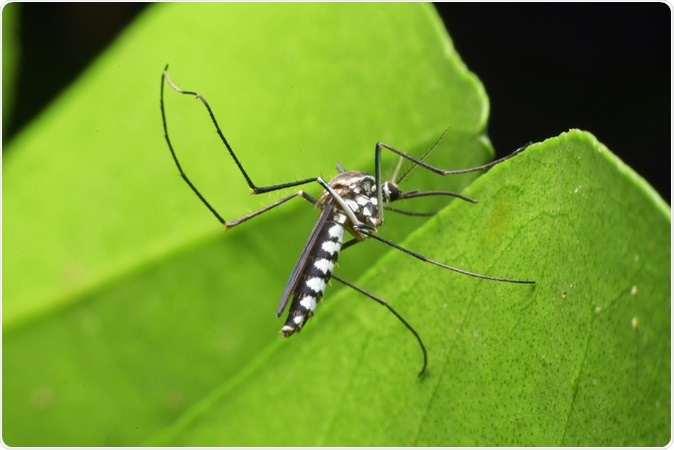The Environmental Protection Agency has now approved the use of special mosquitoes that have been infected with bacteria called Wolbachia for eradication of mosquitoes in 20 states and District of Columbia. This approach is known as the use of “biopesticide”. Now mosquitoes that spread viral illnesses like Dengue, Chikungunya, Zika etc. would be controlled effectively.

Image Credit: Winai Pantho / Shutterstock
Australian scientist Scott O'Neill from the Monash University has been working for the last two decades nearly trying to make these Wolbachia-infected mosquitoes effective in vector control. O'Neill wanted to work on vectors that spread deadly incurable viral disease dengue. He said millions of people are infected yearly and of these thousands die each year. There is no cure and at present no vaccine is available to combat this infection. The Aedes variety of mosquitoes transmit this infection.
Wolbachia infection of the mosquitoes was one approach and the other was to genetically modify the mosquitoes so that they cannot transmit the infection. Genetic modification approach has not seen any success till date. However, it was seen that Wolbachia-infected mosquitoes were unable to carry the dengue virus. The bacteria renders the mosquito incapable of carrying or transmitting the dengue virus and thus stops the transmission chain.
Last year O'Neill had worked on a small project and released some of his Wolbachia-infected mosquitoes within two small communities in northeastern Australia. O'Neill said that within a very short period of time, the Wolbachia infected mosquitoes could replace the wild mosquito population until nearly all mosquitoes had Wolbachia infection. This stopped the spread of dengue in the communities.
The biggest hurdle he said was to infect the mosquitoes with Wolbachia. The bacteria had to be introduced into the eggs of the mosquitoes that are miniscule and almost invisible to naked eye. From these eggs adult mosquitoes emerge that may be infected with the bacteria. The success rate of the infection is quite low he explained.
Last week on 3rd of November 2017, the EPA had registered and approved the biopesticide – ZAP Males® that are actually Wolbachia infected mosquitoes. These can reduce the population of several species of mosquitoes including Aedes albopictus, or Asian Tiger Mosquitoes. These can spread viral infections such as Zika. These mosquitoes are adult male mosquitoes that are infected with the ZAP strain of the Wolbachia bacterium. They can mate with females who lay eggs that do not survive. This kills the life cycle and stops the further propagation of these mosquitoes.
ZAP Males® at present would be sold by authorized seller MosquitoMate, Inc. for five years in the District of Columbia and 20 states. The states that are covered include “California, Connecticut, Delaware, Illinois, Indiana, Kentucky, Massachusetts, Maine, Maryland, Missouri, New Hampshire, New Jersey, Nevada, New York, Ohio, Pennsylvania, Rhode Island, Tennessee, Vermont, and West Virginia,” according to the statement. Before use the manufacturers need to register at the particular state where they are being used. The manufacturers plan to start their release and sale in Lexington. They would go on to Louisville, Kentucky, and Cincinnati, Ohio, from there. The initial sale begins at hotels, homes and golf courses they said.
David O’Brochta, an entomologist at the University of Maryland in Rockville called this an appealing option as it is a “non-chemical” option of dealing with the mosquitoes.